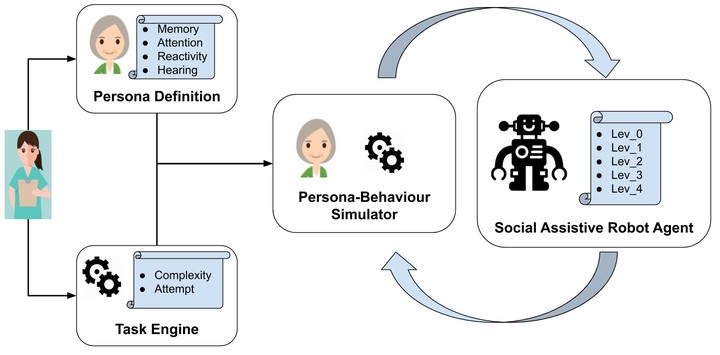
Abstract
Collecting data in Human-Robot Interaction for training learning agents might be a hard task to accomplish. This is especially true when the target users are older adults with dementia since this usually requires hours of interactions and puts quite a lot of workload on the user.This paper addresses the problem of importing the Personas technique from HRI to create fictional patients’ profiles.We propose a Persona-Behaviour Simulator tool that provides, with high-level abstraction, user’s actions during an HRI task, and we apply it to cognitive training exercises for older adults with dementia. It consists of a Persona Definition that characterizes a patient along four dimensions and a Task Engine that provides information regarding the task complexity. We build a simulated environment where the high-level user’s actions are provided by the simulator and the robot initial policy is learned using a Q-learning algorithm. The results show that the current simulator provides a reasonable initial policy for a defined Persona profile. Moreover, the learned robot assistance has proved to be robust to potential changes in the user’s behaviour. In this way, we can speed up the fine-tuning of the rough policy during the real interactions to tailor the assistance to the given user. We believe the presented approach can be easily extended to account for other types of HRI tasks; for example, when input data is required to train a learning algorithm, but data collection is very expensive or unfeasible. We advocate that simulation is a convenient tool in these cases.